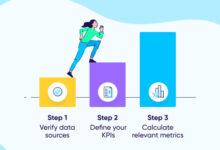Resources for Boosting Your E-Commerce Business

The e-commerce landscape is continuously evolving, with new technologies and strategies emerging to help businesses thrive in the online marketplace. To ensure your e-commerce business stands out and captures a loyal customer base, it’s vital to utilize a variety of resources designed to enhance your platform’s overall performance. From optimizing site speed to refining the user experience, every detail counts in creating a successful online store. In this article, we explore some of the top tools and tactics to elevate your e-commerce business to new heights.
Implementing Effective Email Marketing Strategies in E-Commerce
Email marketing is a powerful tool for e-commerce, offering a way to engage customers through personalized messages that drive repeat purchases. By segmenting audiences and sending tailored emails like welcome series, abandoned cart reminders, and exclusive offers, businesses can boost open rates and encourage sales without overwhelming subscribers.
Choosing the right platform, such as SafeOpt, helps automate campaigns, personalize content based on customer behavior, and track results. Pair that with eye-catching design and compelling copy, and you’ve got a recipe for higher engagement and stronger conversions.
See also: Bill Duker Net Worth: Exploring Bill Duker’s Business Ventures and Net Worth
Essential Tools for Optimizing Your E-Commerce Site Performance
E-commerce site performance is crucial for customer satisfaction and retention. Slow loading times and cumbersome navigation can lead to high bounce rates and lost sales. To improve site performance, use (CDNs) and website optimization tools to compress images and streamline code. Mobile optimization is essential for capturing the mobile shopper market.
Implement robust security measures like SSL certificates, secure payment gateways, and regular audits to protect your business and customers’ information. Integrate powerful search functionalities like autocorrect, suggestions, and filters to enhance the shopping experience. A robust hosting solution ensures the site remains fast and reliable even during traffic spikes.
Leveraging Social Media Platforms for E-Commerce Growth
E-commerce businesses can leverage social media platforms like Instagram, Facebook, and Pinterest to engage with target audiences and showcase their products. Social media advertising can increase visibility and drive traffic, but it’s crucial to monitor platform performance to allocate budget effectively.
Social commerce features like shoppable posts are transforming the shopping experience by allowing customers to make purchases directly within social media apps, streamlining the process and capturing sales. Social media platforms can also serve as, building trust and improving reputation management. Showing customer care can sway indecisive shoppers and elevate a brand’s image.
Understanding Analytics to Drive E-Commerce Sales
E-commerce analytics helps online businesses understand customer behavior and preferences by analyzing data from various touchpoints. It helps businesses evaluate performance using metrics like conversion rates, average order value, and customer lifetime value. Analytics tools can identify underperforming areas, such as heat maps, and optimize site layout and user journey to maximize sales.
Tracking the customer journey helps identify the best marketing efforts, reallocating resources effectively. Understanding traffic sources is crucial for advertising and content strategies. Integrating analytics from the start sets the foundation for data-driven decision-making, and regular review keeps strategies agile and responsive to changing consumer behaviors and market trends.
Secrets to Creating Engaging and SEO-Friendly Content for E-Commerce
Effective content marketing is crucial for e-commerce businesses looking to boost their search engine rankings and attract organic traffic. By focusing on keyword research and creating engaging content that aligns with customer interests, you can improve SEO and build credibility. Striking the right balance between keywords and natural language is key to maintaining content quality.
Offering valuable content like detailed product descriptions, blog posts, and buying guides sets your site apart from competitors. Including multimedia elements like images and videos can also enhance the user experience. Regularly updating content signals to search engines that your site is active, improving visibility and rankings. Partnering with a Phoenix digital marketing agency can help refine your content strategy and optimize SEO efforts.
Altogether, boosting your e-commerce business in today’s competitive online marketplace requires a multifaceted approach. By leveraging powerful optimization tools, embracing social media, implementing strategic email campaigns, understanding analytics, and creating compelling, SEO-friendly content, you can set the stage for significant growth and lasting success.






